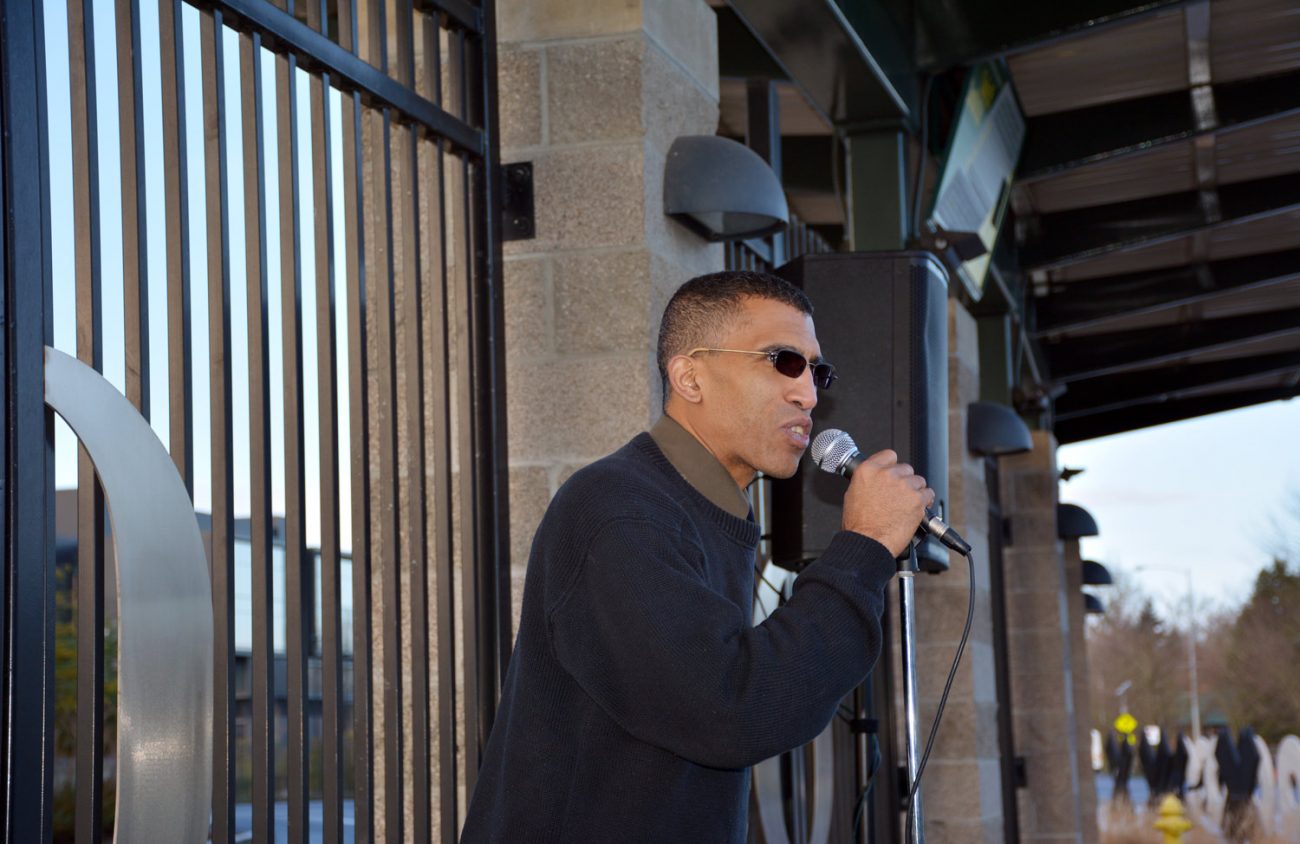“We serve as a reminder of where we’ve been and where we’re going,” says local NAACP President Eric Richardson. “We call on the United States to live up to its promise and its higher ideals.”
Richardson is speaking at the NAACP’s offices, in one of the historic Mims houses on High Street.
The charming home is one of the first African-American-owned buildings in Eugene, purchased by the Mims family in 1948 under the name of a sympathetic white employer.
At the time, exclusionary laws forbade African-Americans from legally residing inside Eugene’s city limits, let alone buying property. The Mims house became a port for African-American travelers, including luminaries like Louis Armstrong, Ella Fitzgerald and Nat King Cole, who were not allowed to stay in local hotels in what was then a strictly segregated town.
“Eugene has a small African-American population, but it has a great history of activism,” Richardson notes. “The Mims family is a big part of that. Being here, in their home, shows our youth that we care about our elders and the progress that we’ve made.”
And the Mims house is a perfect backdrop for the NAACP’s vital work: “Historically, as a law-based organization, we’ve sought to go to the highest level of government, to remove access barriers to the polls, to businesses, to homes,” Richardson says.
“Locally we’re called upon to work with housing issues, school issues, neighbor issues,” he continues. “When there’s discrimination and people are thinking, ‘Who can I call?’”
They call the NAACP.
The NAACP also helps to develop systems to bolster the community’s infrastructure, to support those in need. “Childcare, transportation, fees,” Richardson says. “These are real obstacles to those that are struggling.”
The local NAACP is volunteer-driven, providing advocacy, referrals and community connections.
The Youth Council provides leadership development through civic engagement and group activities. The group also sponsors an ongoing mentoring program for 8th through 12th graders, and a Back to School/Success in School tutoring program for K-12 students.
“We’re also creating legislative bills to address police accountability through greater transparency in public records access,” Richardson says. “And we’re looking at Oregon’s stringent free speech laws, that allow hate speech to exist.”
But change happens slowly: When Oregon joined the Union, it was the first state to do so with exclusionary clauses built into its Bill of Rights. The passage of the 14th Amendment did little to quell everyday racism and oppressive laws that made many communities in Oregon inhospitable to non-whites. In fact, the remaining racist language wasn’t scrubbed from our state constitution until 2002.
That’s why organizations like the NAACP matter, now more than ever.
“America is suffering from an outdated social narrative, created in the period of slavery, that places European civilization above all others, with white men on top,” Richardson says. “Even though we know it to be untrue, this continues to be our bedrock narrative.”
“We have to engage,” he says. “And we will vote.”
Richardson encourages the community to get involved. “We’re welcoming of volunteers and members, and we’re looking forward to the legislative session,” he says. “We welcome people to don a T-shirt, and go to the capitol with us, to be a voice for peace, and civic engagement.”
If Richardson could talk to a group of school kids about 2016 and about the recent election, what would he say?
“I would speak positively about our system,” he says. “We’ve had ups and downs, but we have to have faith in the system we’ve set up. I’d tell them to be aware, to read, to learn how our government works. We’re all Americans. We all have points of view. The more we talk to each other, the better.”
Annual membership in the NAACP is $30. The organization welcomes donations of $25-250 or more to support local programs. To become a member, donate or to learn about volunteer opportunities, visit naacplanecounty.org, or call 541-484-1119.
